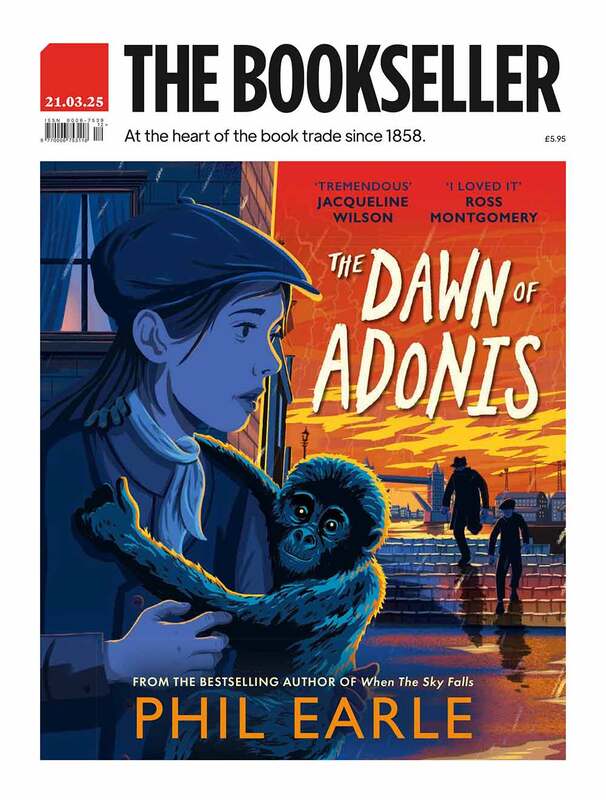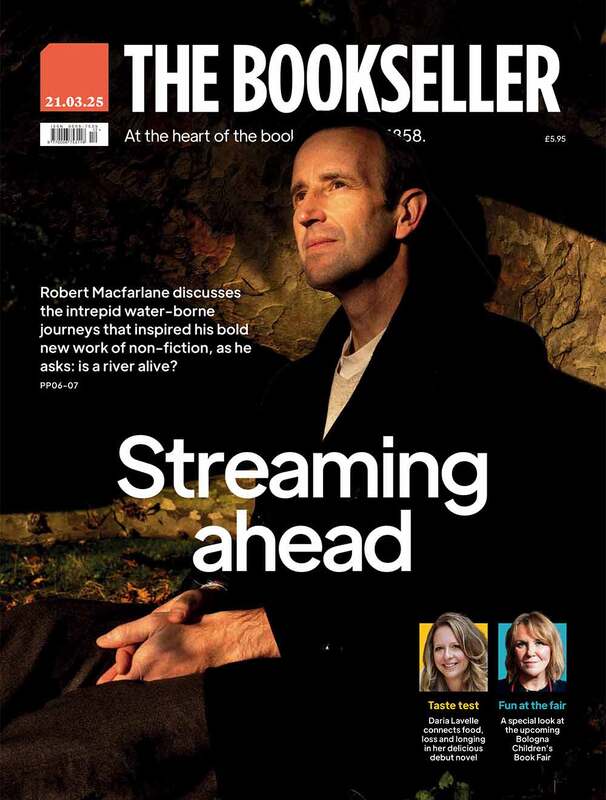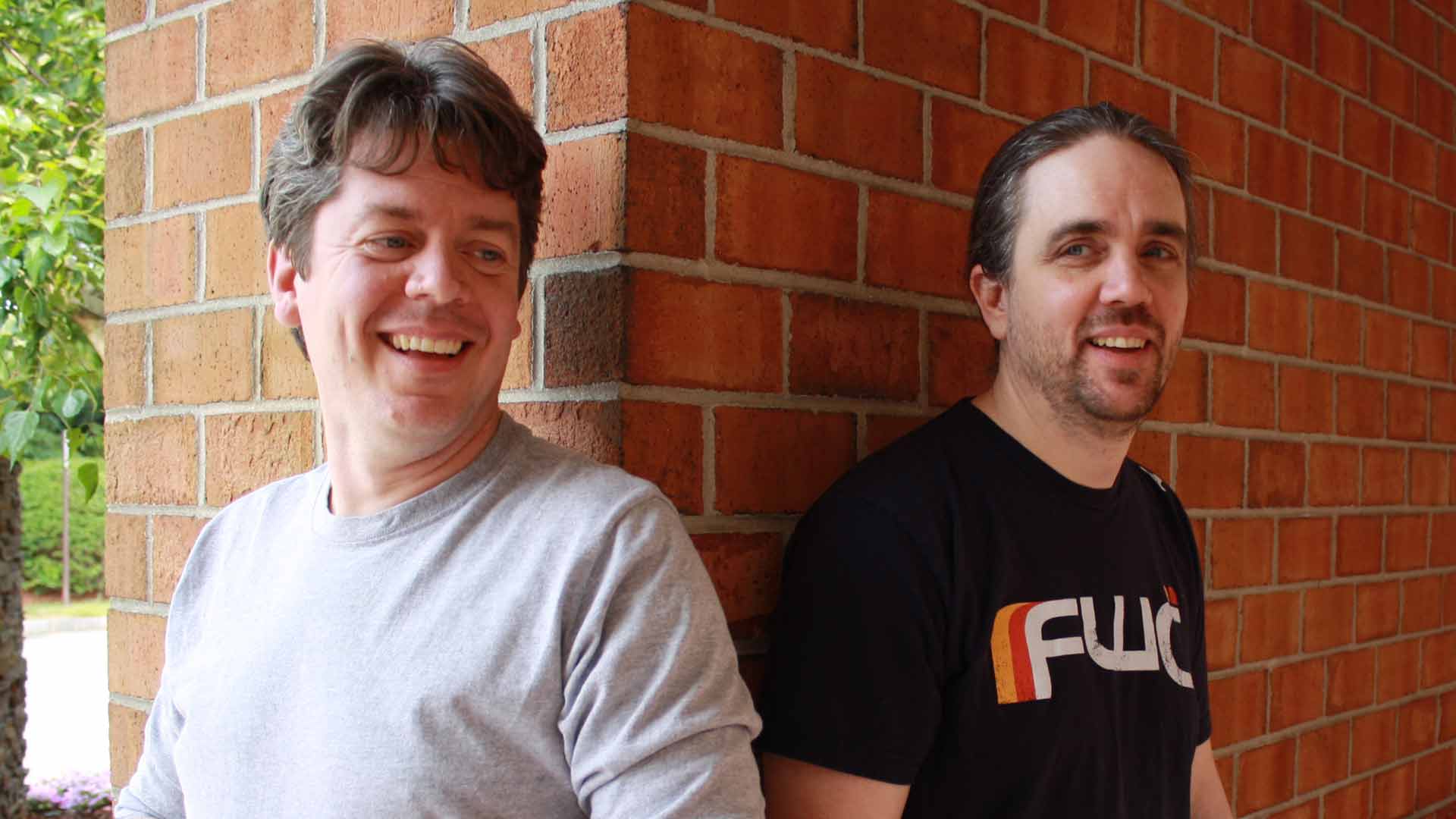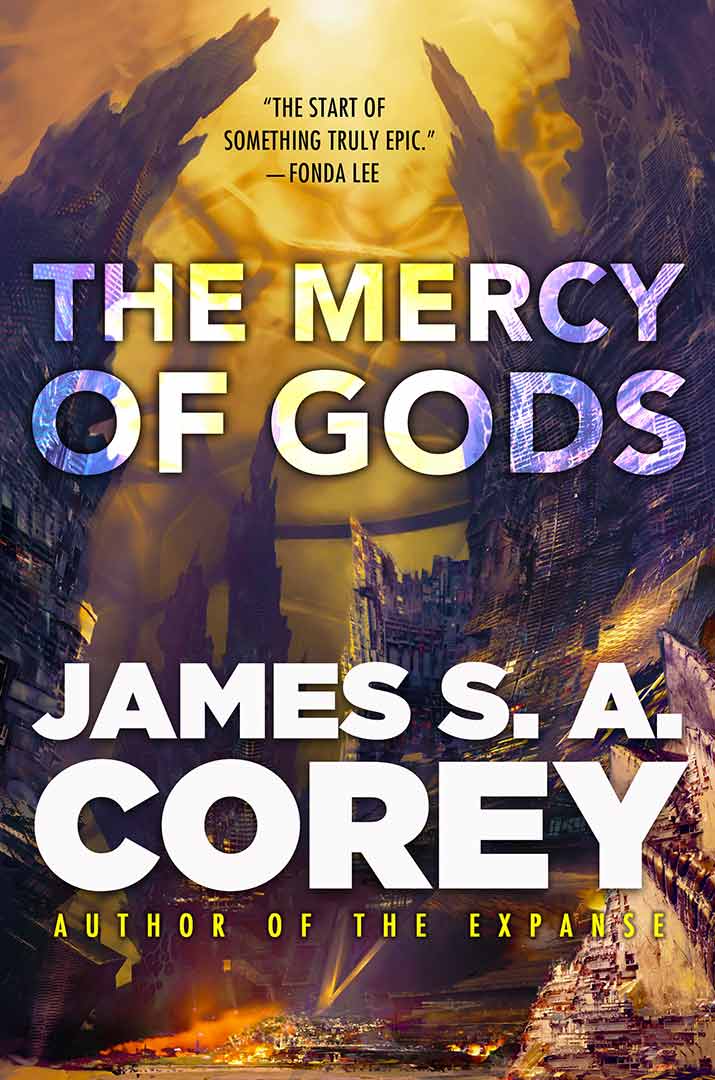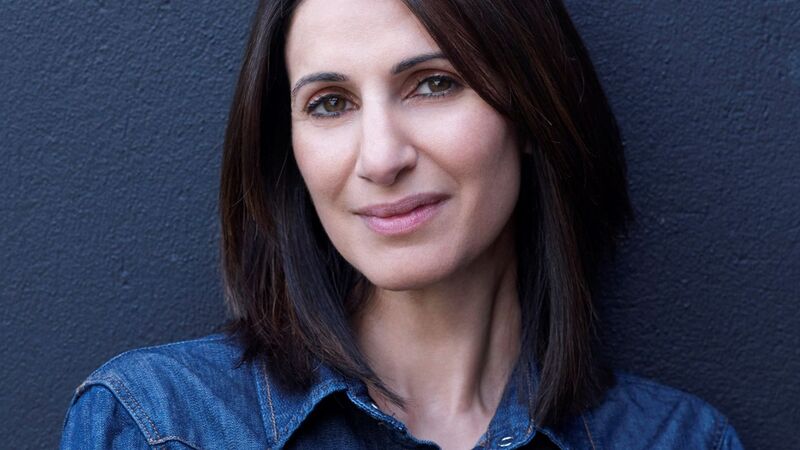James S A Corey duo launch series The Captive’s War about humans captured by aliens

Katie Fraser is the chair of the YA Book Prize and staff writer at The Bookseller. She has chaired events at the Edinburgh International
...moreDaniel Abraham and Ty Franck, the two writers behind the science-fiction legend James S A Corey, tell us about their new title The Mercy of Gods
It’s six o’clock in the evening in London and I’m about to start talking to Daniel Abraham and Ty Franck, the two writers behind the science-fiction legend James S A Corey. Abraham is slightly late—two minutes to be exact—but Franck is already on the phone chasing him for the “British interview”. Some faint profanities later and Abraham joins the call from his home in New Mexico.
Writing together as Corey, Abraham and Franck created The Expanse, a nine-book behemoth with multiple spin-off novellas, short stories and an Amazon Prime adaptation, which the authors also produced. Now, the pair are venturing into new territory with The Mercy of Gods, the extraordinary first instalment in The Captive’s War trilogy.
Franck is “for sure” feeling the pressure with the new series. “The number of writers who became famous for one series and then were unable to write anything that wasn’t in that series after that and have it sell is a pretty long list,” he says. For Abraham, the pair have reached “the point where we’re going to find out if we have James S A Corey fans or Expanse fans”.
Described by the authors as the “disappointing love child of Frank Herbert and Ursula Le Guin”, The Mercy of Gods is set in the far future “where humans are the least important species in the galaxy”, says Franck. The narrative moves between several different points of view; from a group of human biologists from the planet Anjinn to the Carryx, a seemingly omnipotent alien race.
Dafyd is a lab assistant on Anjinn who is aiding the pioneering scientist Tonner Freis and his team. The group has had a breakthrough, but jubilations quickly turn to ash, when 17 “city-sized objects” flood the planet’s sky, heralding the arrival of the Carryx and their frightening minions. Things move swiftly after this—the Carryx take control of the planet, killing millions and taking the humans deemed useful back to their homeworld. Dafyd and others are taken across the universe to a new world where they are exposed to a cornucopia of new species and threats. It is a Darwinian environment where the team must consider the lengths they will go to preserve their humanity.
This book is making an argument that individuality can exist and have power even in totalitarian or authoritarian places
Unlike The Expanse series, which was human-centred and set in the near future, The Mercy of Gods introduces a host of different alien species. Dafyd and his fellows are not the first group to be enslaved by the Carryx, but one of many brought to become “functionaries in the empire”, says Franck. There are the “Night Drinkers” akin to vicious extraterrestrial monkeys, horse-like beings called the Phylarchs of Astrdeim and more. Each new species is meticulously described and had to pass a “kind of plausibility check”, says Abraham. “I have a biology degree and I have abused the teaching that has been given me in all kinds of ways, of which this is one.” When implementing one such plausibility check, Franck remembers there was “one [alien] that was floating globes of shimmering light and I was like: ‘I don’t think we can have energy creatures in this.’ That felt too ‘Star Trek’ to me, so I changed it to clouds of bioluminescent insects that from a distance looked like little globes of light.”
The Carryx are the principal players in The Mercy of Gods and have a very specific sociopolitical hierarchy. When constructing the Carryx consciousness, the duo looked at how termites and naked mole rats behave to create an alien species where members are both highly intelligent individuals and part of a super organism. Franck explains: “In science fiction we tend to go fully one direction or the other: either they’re a hive mind, where they all share one mind, or they’re super-intelligent individuals. One of the questions I was curious about was: ‘What if the individuals in the species are super intelligent individuals, but biologically they [also] belong to a super organism?’”
Growing up in a “very religious” family, Franck regularly attended church. Although he describes himself as the “least religious person on the planet”, the sermons would years later provide the genesis of The Mercy of Gods. During the services, “the only thing you [were] allowed to have in your lap was a Bible... and one of the [sections] I kept going back to was The Book of Daniel.” In the story, Daniel is “from a little agrarian country”, Franck says, “with a tiny army and this gigantic military force shows up and drags him off”. The force in question is the Babylonian empire whose method of annexation and control intrigued Franck, who eventually pitched
The Mercy of Gods to Abraham as a science-fiction retelling of this biblical story.
The parallels are distinct. Like the Carryx, the Babylonian empire of The Book of Daniel “would take the best and brightest from the country they had conquered and try to integrate them into the Babylonian government as quickly as possible”, Franck explains. The “forced integration of cultures” intrigued him while Abraham was drawn to the idea of “The Book of Daniel as the biblical version of Orwell’s 1984... It’s [about] somebody who’s living inside an authoritarian empire and maintaining an identity and self outside of that empire while being completely subsumed by it”.
The duo “tried very hard” not to draw from real-world events, but Abraham reflects on how “it’s a little weird writing a book [while living in America] that involves the enslaving of humans without it actually being based on the American experience. We’re going back to a biblical story, but we live in a culture that is absolutely living with the scars, and sometimes open wounds, of that experience”.
The pull between the individual and the collective is constant in The Mercy of Gods. The Carryx’s authoritarian regime demands conformity, but Dafyd and the other humans fight to maintain a form of individuality under a dictatorship. For the authors, this is an incredibly difficult, but ultimately powerful, form of resistance. “There’s the romantic idea of resistance, which is what we mostly see in movies,” says Franck. “We go get some fighter planes and we attack the alien ships. That’s the sort of resistance that most literature and films go for because it’s very romantic, this idea that we fight back. Trying to do a version of it that’s not the romantic version, where what you have to do is find a way to survive that isn’t physically fighting back, I find that idea interesting and one that’s not often covered in literature.” Abraham added: “This book is making an argument that individuality can exist and have power even in totalitarian or authoritarian places.”
The Mercy of Gods is not only a triumphant introduction to a new galactic world that will appeal to Corey and The Expanse fans alike, but a timely depiction of human resilience in the darkest of times.

